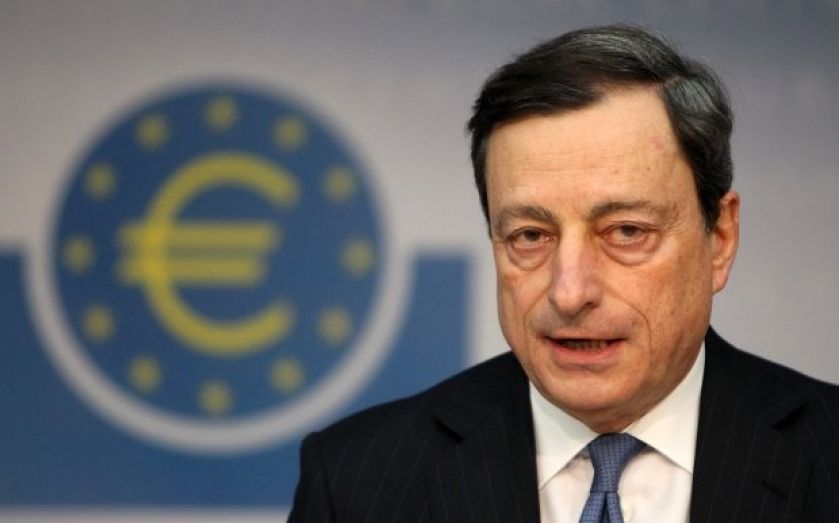Will the ECB finally cut rates as currency bloc drifts towards deflation?

While consensus indicates that we'll see no action from the European Central Bank today, recent falls in inflation may see the hand of president Mario Draghi forced.
The latest data from Eurostat shows annual inflation in the Eurozone falling to just 0.5 per cent in March, down from 0.7 in February.
Analysts at BNP Paribas suggest that "there is a strong case for lower policy rates with inflation so low." Many even fear that the Eurozone could even be headed for deflationary territory. Jim Reid of Deutsche Bank warns that inaction could see the ECB lead markets "closer towards a monetary oasis".
The central bank has attempted to assuage these concerns this week, with vice president Vitor Constancio stating that inflation is highly likely to rebound in April. But Ben Southwood, head of policy at the Adam Smith Institute, says that markets aren't buying recent 'open mouth operations', as statements from ECB staff have failed to move the euro against the dollar.
That 0.5 per cent headline inflation figure masks that many Eurozone members are now suffering from deflation – and not the good kind, that stems from improvements in productivity, says Southwood. Instead, these states now see deflation without real GDP growth. That suggests that demand is too low, and that prices are falling to clear markets.
ETX Capital's Ishaq Siddiqi says that investors have adopted a "wait-and-see approach" ahead of any potential action by the central bank. Market participants may see rate cuts – even into negative territory – as inadequate, and may want to see a "big bazooka" if deflationary concerns do materialise.
If we won't see cuts to rates then Draghi is likely to push "de facto loosening", says Reid, arguing that economic recovery will help to raise inflation, reducing real rates and easing policy. And increased potential for QE could be seen as a form of "verbal loosening", as even two of the ECB's most hawkish members have come close to voicing support for asset purchases.
Analysts at Societe Generale believe a mere rate cut would lack the necessary firepower at this stage. November's rate cut saw the euro returning to its pre-cut level against the dollar in just two weeks, leading them to be "sceptical about the economic benefits of anything but very large scale asset purchases".
We'll know if there's any change when the results of the latest meeting are announced at 12.45pm today.
ECB claim that inflation expectations still well-anchored becoming very stretched. From Breugel this AM pic.twitter.com/V9PrnZlFfe
— A Evans-Pritchard (@AmbroseEP) April 3, 2014